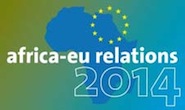Do we need a ‘data revolution’ goal to create the right demand for a data and statistics revolution post-2015? Recent calls for a ‘data revolution’ emphasise how in the dark we are on the social, economic and developmental status of developing countries, especially in Africa. Accurate, timely, relevant and available data and statistics in many cases simply don’t exist, particularly on households and individuals. With donors becoming increasingly concerned with measuring results, calls for more and better data are increasing. But efforts to improve data are mostly donor-driven and given fluctuating aid levels, they’re rarely ...
+++ Guest post by William Hynes+++ Official Development Assistance (ODA) has for 45 years been the global standard for measuring donor efforts in support of development co-operation objectives. There have recently been calls for the concept to be modernised. Yet the reform proposals on the table constitute modest adjustments rather a radical overhaul. The scope for reform is also bounded by some high level decisions. The 2012 DAC High Level Meeting agreed to “maintain the definition of ODA”, while investigating how to modernise and clarify it, and discussions on the post 2015 development agenda – ...
The “EU’s comprehensive approach to external conflict and crisis”, launched jointly last week by the European Commission and the High Representative of the EU for Foreign Affairs and Security Policy, has been a long-awaited Communication for those following the development of the EU’s external action closely. It refers to conflict and crisis in it’s title but, in essence, goes beyond this as it aims to clarify the guiding principles for a joint EU external action across all areas, while emphasising dealing with conflict (prevention) and post-crisis recovery. The EU started discussing the need for this ...
‘The [EU] institutions need to change’, said the Centre for Global Development’s Owen Barder in an interview with ECDPM at the European Development Days this week. There is a feeling that Europe has so much to offer, due to being in a ‘remarkable position’, as Barder puts it, of States that have come together voluntarily, to share that experience to shape policy in developing countries. This is the so-called added-value of the EU. He said that despite this strong position, Europe must be respectful of other nations’ different starting points. It should change its own ...
Agenda: http://www.ecdpm.org/ettg2013 Background blogs and insight: http://www.africaeu2014.blogspot.be/ Tweets about “#AfricaEU2014″
+++ ECDPM Challenges blog series. Post number two +++ The European Union’s Agenda for Change is a case of evolution over revolution. The EU’s new development policy sketches an aid-centric reform strategy that introduces significant changes for the European aid and development cooperation landscape in 2014-2020. With Europe in crisis and aid under pressure, the EU wants to increase the effectiveness of its development assistance. What are the biggest implementation challenges, and how fit is the EU to do so? The year 2014 will close the circle from policy to programming to practice. The EU’s aid ...
+++ ECDPM Challenges blog series. Post number one +++ The negotiations on the next post-2015 international development framework will not be easy. This time around there is a lot of interest and many different voices need to be heard. An inclusive process that promotes ownership are seen as key to success. A major challenge is therefore to get as much preparatory work done as possible before the negotiations start in earnest. Over the year ahead the debate will continue to gain pace. Given the success of the Millennium Development Goals in mobilizing international efforts on ...
This article was co-authored by Anna Knoll and Niels Keijzer (Deutsche Institut für Entwicklungspolitik (DIE). The upcoming UN High-level Dialogue on International Migration and Development. Is it not the dream of all people to have the right to move and live where they want? , Owen Barder thinks so. However Paul Collier suggests, in a short article, that people who do move for a better life incur substantial psychological costs that may broadly offset their economic gains through higher wages. He argues that migrants may become wealthier but not always happier and that tensions may ...
Following the usual pre-Summit wonk-up, G8 leaders gathered in Lough Erne last week. Amid burning issues of aid, trade and foreign policy, two topics were placed high on the agenda by the UK Presidency: combating tax evasion and avoidance, and transparency of governments and multinationals in extractive industries. Both are linked to the problem of illicit financial flows. Five years ago few advocated for tax justice. The push by advocacy groups and the pull of the purse-string made the issue attain global stardom faster than a pop idol. It now takes centre stage in the ...
The review of the European External Action Service (EEAS) is in full swing – on June 12th the European Parliament (EP) presented its inputs on the organisation and functioning of the service, which is just over 2 years old. The reply from EU High Representative Catherine Ashton gives some hints on the content of the report, which will eventually to be submitted to the Council, and is expected by summer 2013. ECDPM has also discussed the potential politics of the review process scope in their previous paper ‘Gearing up for the 2013 EEAS Review’. The ...

















